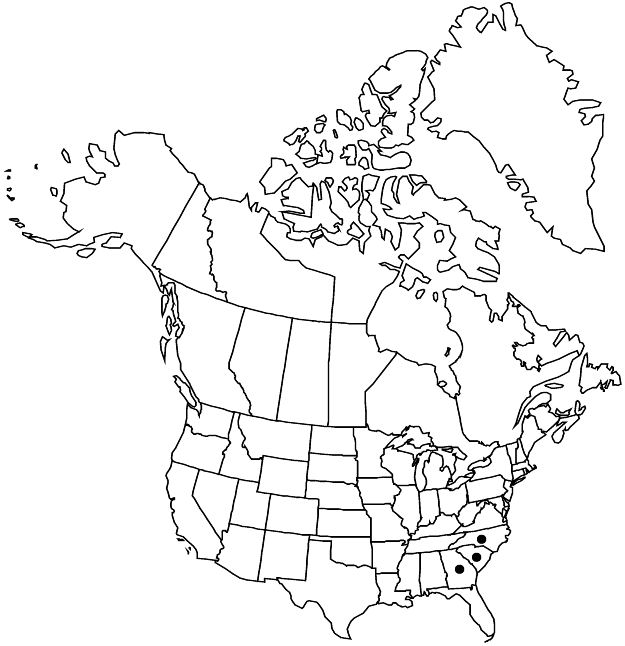Hypericum buckleyi
Amer. J. Sci. Arts 44: 80. 1843.
Shrubs, decumbent, spreading and rooting, wiry, branches ascending to erect, forming compact mats, 0.5–4.5 dm. Stems: internodes 4-lined. Leaf blades oblong or elliptic to obovate, 4–25 × 2–12 mm, base not articulated, cuneate, margins plane, apex rounded, midrib with 2–4 pairs of branches. Inflorescences 1(–5)-flowered. Flowers 20–25 mm diam.; sepals persistent, not enclosing capsule, 5, broadly elliptic to elliptic-spatulate or obovate, subequal, 4–5 × 2.5–3 mm; petals 5, golden yellow, oblanceolate, 6–10.5 mm; stamens persistent, 100; ovary 3-merous. Capsules ovoid to ovoid-cylindric, 8–12 × 5 mm. Seeds narrowly to broadly carinate, 1.5–2 mm; testa finely foveolate-reticulate.
Phenology: Flowering early–mid summer (Jun–Jul).
Habitat: Seepage areas, moist rock crevices, ditches, road embankments
Elevation: 900–1600 m
Distribution

Ga., N.C., S.C.
Discussion
Hypericum buckleyi is found throughout the southern Appalachian Mountains.
The decumbent habit and persistent sepals and stamens distinguish Hypericum buckleyi from its nearest relative, H. prolificum.
Selected References
None.